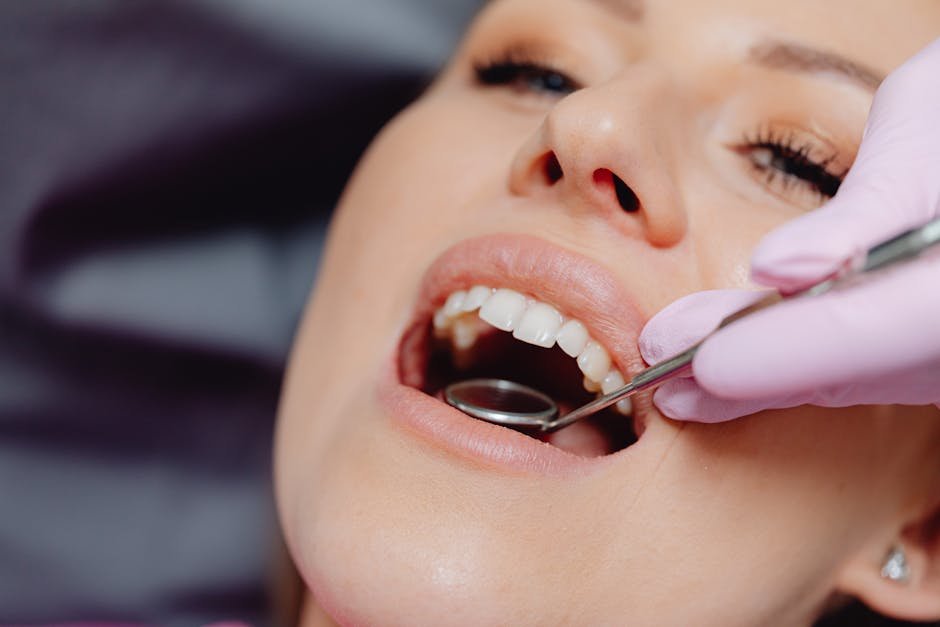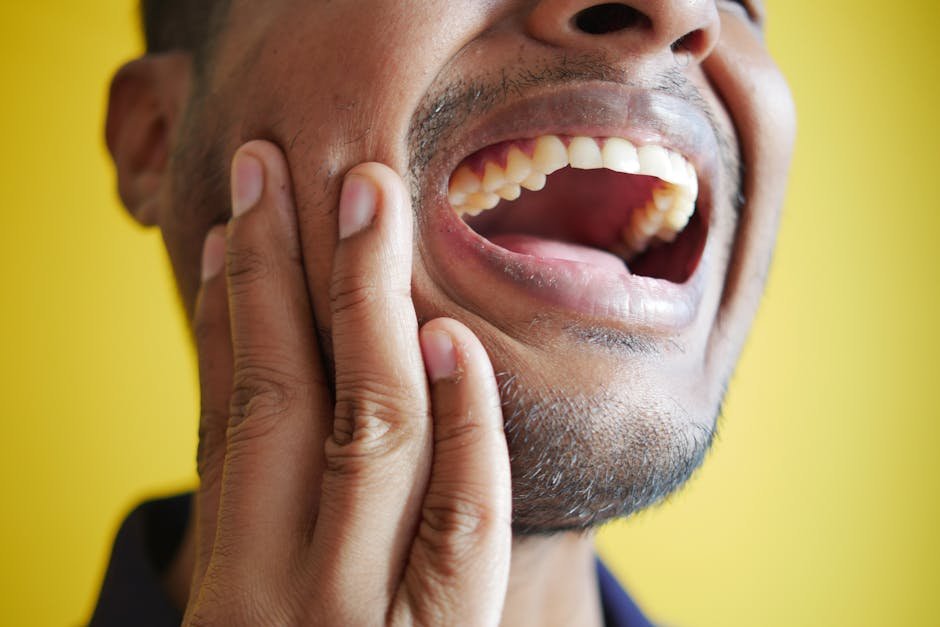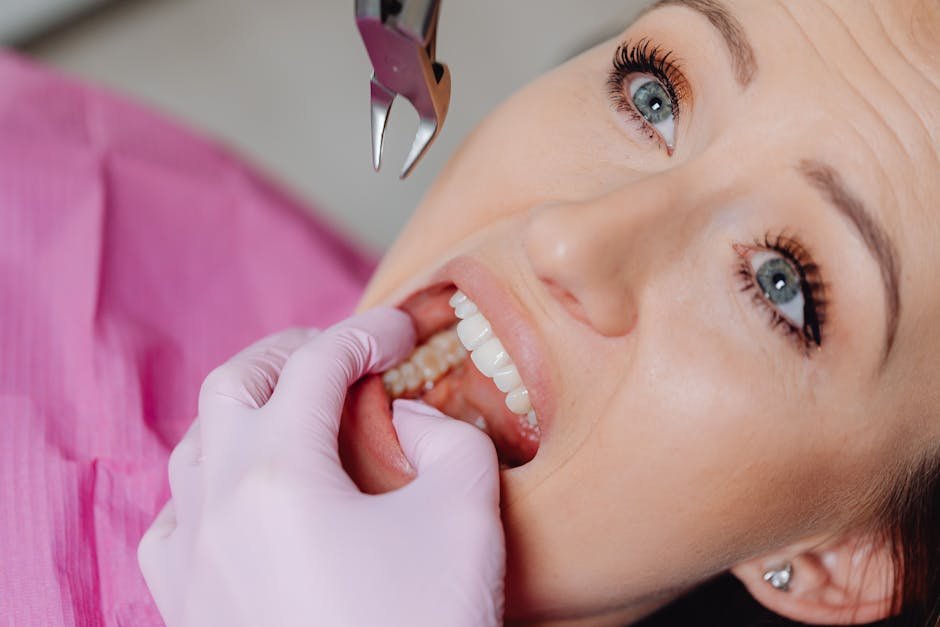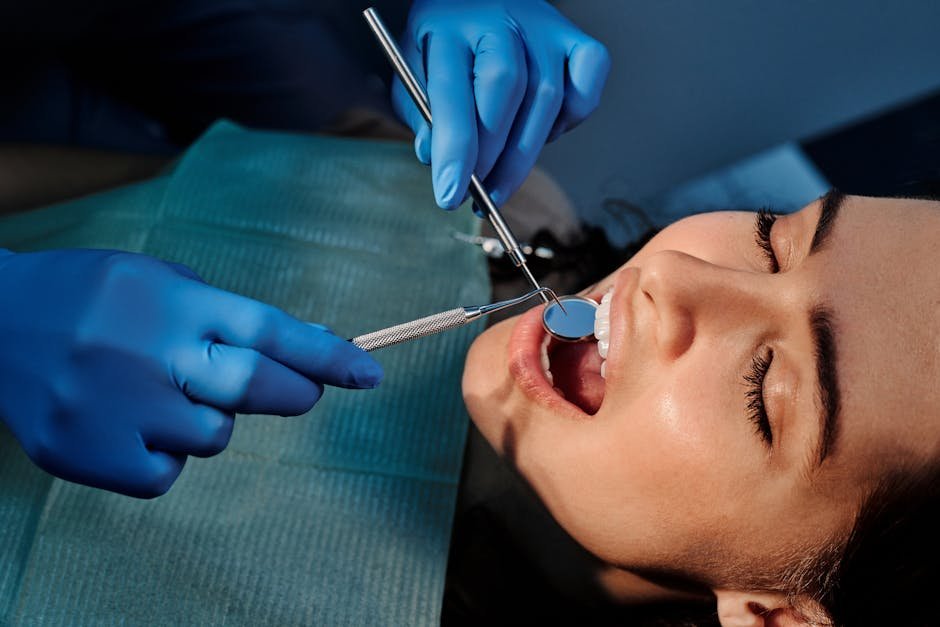You wisdom teeth, also known as third molars, are the last teeth to come in, usually between the ages of 17 and 25. Despite its popular name — wisdom tooth —, they often cause toothache, inflammations in the gum and dental problems that require extraction.
Summary
In this complete guide to wisdom teeth, you will understand what are the symptoms, when necessary make the extraction, what are the risks of not treating it and what is the removal surgery. Find out everything about wisdom teeth and take better care of yours oral health.
Explanatory video about wisdom teeth:
Inflamed wisdom tooth: what can cause it and how to relieve it
One inflamed wisdom tooth can cause great discomfort. This often occurs during tooth eruption, especially when there is no enough space in the dental arch, which leads to inflammation of the gums around. The accumulation of food residue and bacteria can also trigger infections in the area.
To relieve toothache, it is recommended to use painkillers such as paracetamol or ibuprofen, in addition to rinsing with warm water and salt. Cold compresses on the painful area also help to reduce swelling.
Although home remedies may offer temporary relief, it is best to consult a dentist. In some cases, the wisdom tooth extraction could it be recommended to avoid complications such as infections or commitment of other teeth.
At what age do wisdom teeth usually come in?
THE wisdom tooth eruption usually occurs between the ages of 17 and 25, with the last tooth to grow in the arcade. However, there are those who do not develop wisdom teeth or only have part of them visible, which characterizes the so-called impacted or semi-impacted wisdom tooth.

If the wisdom tooth is coming in and causes symptoms such as pain or swelling, it is important to seek a professional to assess whether it will be necessary remove wisdom tooth. In some people, wisdom teeth can born lying down, which compromises neighboring teeth and causes misalignment.
How to identify the symptoms of wisdom teeth coming in?
Among the wisdom tooth symptoms in eruption are pain in the back of the mouth, redness, swelling of the gums and difficulty opening the mouth. It is common to notice bad breath or bad taste when the wisdom tooth is partially erupted and accumulates residue.
THE wisdom tooth eruption can lead to infections if not properly cared for. One of the most common problems related to wisdom tooth coming in is the pericoronitis, inflammation of the gums covering the partially exposed tooth.
Wisdom tooth symptoms that require attention
It is common to feel mild discomfort during the wisdom tooth eruption, but signs such as intense pain, swelling in the face, pus, fever or difficulty chewing are reasons to visit the dentist. These wisdom tooth symptoms indicate that the tooth may be causing structural or infectious damage.
THE wisdom tooth can cause problems even when not completely visible. The gum around it can hide an infection that affects oral health as a whole, requiring a dental evaluation and, often, extraction surgery.
Wisdom tooth pain: what to do to relieve the pain
During a wisdom tooth pain crisis, it is recommended to use painkillers, applying ice to the face, resting and eating lightly. Rinsing with warm water and salt helps control mild infection and reduce discomfort.

If the wisdom tooth pain persists for more than two days or is accompanied by fever, swelling or difficulty opening the mouth, it is essential to see a dentist. wisdom tooth extraction may be necessary to prevent the infection from spreading.
When is wisdom tooth extraction really necessary?
THE wisdom teeth extraction could it be recommended when there is infection, lack of space, damage to other teeth or when the tooth is included. One impacted wisdom tooth can form cysts, affect the bone and even compromise dental alignment.
Dentists recommend preventive extraction in some cases, even without pain, to avoid future complications. Each situation must be evaluated individually, considering the position of the tooth and the bone structure.
How is the upper wisdom tooth extraction performed?
THE upper wisdom tooth extraction is usually simpler than that of the lower ones. The procedure involves local anesthesia and the use of instruments such as levers and forceps to remove the tooth from the bone.
In cases of lying wisdom or with crooked roots, it may be necessary to fragment the tooth before removal. The extraction surgery It is performed by a dentist or oral and maxillofacial surgeon experienced in procedures dental.
Care after wisdom tooth surgery
After extraction, physical exertion, hot foods and aggressive brushing should be avoided. extraction site. The first 24 hours after extraction are critical for healing and preventing bleeding.

Cold compresses help reduce swelling, while analgesics control pain. Liquid or soft foods should be prioritized, and the use of soft toothbrush is essential to maintain hygiene.
👉 Wisdom teeth can cause discomfort that goes beyond the mouth. Find out in our oral health guide how to take good care of your teeth at every stage of life.
What are the risks of not treating an inflamed or impacted wisdom tooth?
One wisdom tooth can cause serious complications if left untreated. The infection can spread, leading to abscesses, fever, and severe pain. The impacted wisdom tooth can still press other teeth, change the bite and wear down the root of the neighboring tooth.
THE tooth removal in a timely manner avoids these complications and reduces the chance of complex surgeries. Regular dental check-ups are essential to detect problems before they become serious.
Can wisdom teeth grow more than once?
Although wisdom be born only once, there are cases where the tooth appears to be coming back. This is due to the partial eruption or dental remains after an incomplete extraction. There are also rare cases of supernumerary teeth.
If there are doubts regarding the presence of fragments or pain after surgery, it is necessary to return to the dentist for a new evaluation with an imaging exam.
Final considerations about wisdom teeth
THE wisdom tooth is an element that can generate several complications, from inflammation to misalignment of the teeth. Therefore, understanding the symptoms that the tooth can cause is essential to act quickly.

Consult a dentist As soon as you notice signs of pain or incomplete eruption, this is the best way to protect your oral health. The wisdom tooth extraction is often the best solution, but should be recommended by a professional.
Summary: All about wisdom teeth
- THE wisdom tooth is the last tooth to grow and can cause serious problems.
- Pain, infection and swelling in the gums are common signs.
- THE wisdom tooth extraction It is indicated when there is a risk to oral health.
- Impacted or receding wisdom tooth requires extra attention.
- After the surgery, it is essential to follow post-operative care.
- Questions about symptoms should be taken to the dentist.
- Untreated problems can affect other teeth and the bone structure.
FAQ – Frequently asked questions about wisdom teeth
What is the function of the wisdom tooth?
THE third molar It has no relevant masticatory function at present. In many cases, it only brings complications.
When should I consider wisdom tooth extraction?
If there is pain, infection, poor position or risk of affecting other teeth, the wisdom teeth extraction must be considered.
Does wisdom tooth extraction hurt?
THE surgery is done under local anesthesia. Discomfort is controlled with rest and medication.
Can wisdom teeth grow in more than once?
No, but there may be fragments or roots remnants that require new intervention.
What to do after surgery?
Avoid exertion, eat cold foods and follow the dentist's guidelines to have a smooth recovery.



